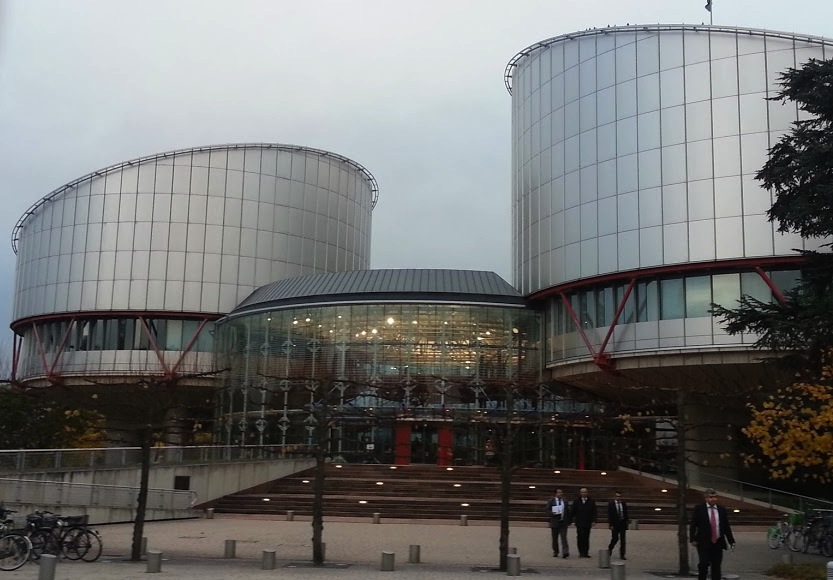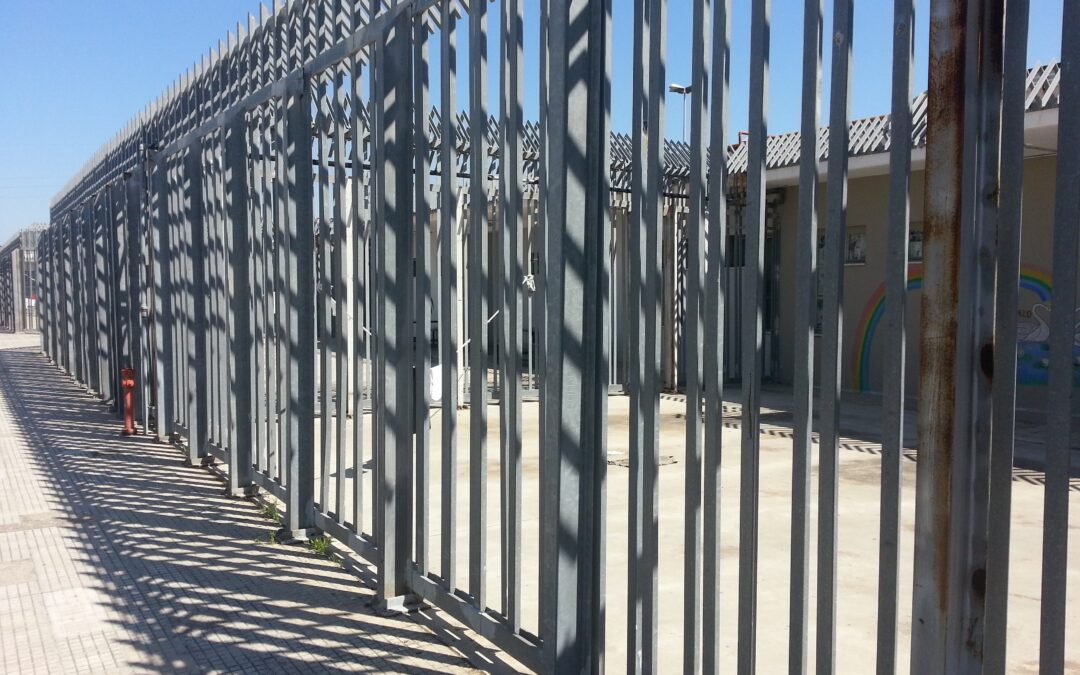
Aug 31, 2017
Today, the ICJ intervened in the case Anatoliy Oleksiyovych Denisov v Ukraine, Application no. 76639/11.
In its submission, the ICJ provided the Court with an analysis in relation to:
(a) The role of court presidents in the self-governance of the courts and in maintaining judicial independence;
(b) International standards in relation to security of tenure of judges and court presidents;
(c) The importance of procedural safeguards, including under Article 6.1 ECHR, in decisions affecting the career and tenure of court presidents; and
(d) In light of international standards and principles, the extent to which a disciplinary measure such as removal from the position of president of a court may interfere with the right to respect for private life as protected by Article 8 ECHR.
The ICJ argued that court presidents, in many European jurisdictions, play an important role in the self-governance and impartiality of the judiciary.
Upholding the independence of the judiciary requires, inter alia, that court presidents should, in the discharge of these functions, enjoy independence from the executive, as well as from other powerful interests.
The intervener will argue that the nature of court presidents’ role has consequences for the application of Convention rights to measures affecting their judicial career, including removal from the role of court president, even in cases where they retain judicial office.
Ukraine-Denisov v Ukraine -Advocacy-legal submission-2017-ENG (full text in PDF)

Jul 14, 2017
The ICJ submitted observations in a case brought with Forum for Human Rights, against the Czech Republic, in defense of children in the juvenile justice system.
The submission is a reply to the Government’s observations in this collective complaint before the European Committee of Social Rights.
In this case, the ICJ and Forum for Human Rights argue that the Czech Republic fails to ensure equal legal protection and participation of children below the age of criminal responsibility in the pre-trial stage of juvenile justice procedures.
The ICJ and FORUM submit that serious systemic flaws in the Czech juvenile justice system deprive a specific group of particularly vulnerable individuals – children below the age of criminal responsibility – of an adequate level of social protection and leave them at risk of inappropriate or unfair procedures leading to arbitrary punitive measures, in violation of Article 17 of the European Social Charter, both alone and read in conjunction with the principle of equality in the preamble to the Charter.
This situation concerns more than one thousand children every year and as a matter of urgency, it requires a structured response.
CzechRepublic-ECSR-juvenilejustice-legalsubmission2-ENG-2017 (download the submission)

Jul 14, 2017
The ICJ and the International Detention Coalition (IDC) have presented their observations on the draft European rules for the administrative detention of migrants.
In their submissions, the two human rights organizations noted that the current detention practices in most Council of Europe member States raise serious questions as to their compatibility with human rights law.
They stressed that, under international human rights law, immigration detention must always be an exceptional measure of last resort in full respect of the norms of necessity, proportionality and non-discrimination.
The ICJ and IDC expressed concern that the current draft document fails to adequately distinguish between criminal and administrative immigration detention regimes.
In doing so, the document risks normalizing unlawful detention practices and codifying prison standards that are wholly inappropriate in the context of migration.
The two organizations submitted that, as a general rule, persons in situations of particular vulnerability should never be detained merely for the purposes of enforcing immigration control.
Finally they called on the drafting Committee to prioritize alternative measures to detention.
Europe-ImmigrationDetentionRules-JointSubmission-ICJIDC-ENG-2017 (download the joint submission)
Background
The Council of Europe’s European Committee on Legal Co-Operation is currently drafting a set of European rules for the administrative detention of migrants.
This is a codifying exercise on a set of immigration detention rules based on existing international and regional human rights standards relating to the conditions of detention of migrants. The stated objective of the draft instrument is twofold:
- Protect migrants held in administrative detention by providing them with individual guarantees on the conditions of their administrative detention (i.e. detention not based on a criminal conviction);
- Provide guidance to both national authorities responsible for the closed centres and persons working closely with migrants.
The process to draft this codifying instrument started in May 2016.
The European Committee on Legal Co- Operation launched a written consultation procedure to involve civil society and key actors in the elaboration process of this codifying instrument.
This submission is the reply of the ICJ and the IDC to this written consultation.
Contact
Massimo Frigo, ICJ Legal Adviser, t: +41 22 979 3805 ; e: massimo.frigo(a)icj.org

Jun 29, 2017
The ICJ presented today a submission to the Human Rights Council’s Universal Periodic Review of Serbia on the independence of the judiciary and the autonomy of the prosecution service.
In its submission, the ICJ drew attention to the following issues:
- the involvement of the National Assembly in the appointment and dismissal of judges and prosecutors;
- the composition of the High Judicial Council (HJC) and State Prosecutors’ Council (SPC) ;
- the tenure of judges, court presidents, public prosecutors, and deputy public prosecutors;
- the protection of judges and prosecutors; and
- Serbia’s engagement with international human rights instruments and mechanisms.
The submission concludes with recommendations addressing the above-mentioned concerns. It builds on the findings of the ICJ contained in its report Serbia’s judges and lawyers: the long road to independent self-governance.
Serbia-IndependenceJudiciaryProsecution-UPRSubmission-Advocacy-2017-ENG (download the submission)

Apr 29, 2017
The High Court of the Hong Kong Special Administrative Region decided to effectively grant the same spousal benefits to a civil servant in a same-sex marriage that the Government provides to the spouses of other married civil servants whose marriages are to persons of the opposite gender.
The High Court held in the case Leung Cheung Kwong v. Secretary for the Civil Service, et. al, that the denial of spousal benefits under the Civil Service Regulations to same-sex couples legally married under foreign laws amounts to unlawful discrimination based on sexual orientation.
“This decision confirms the critical role that the judiciary can and should play in upholding human rights and combatting discrimination based on sexual orientation and gender identity,” said Emerlynne Gil, ICJ’s Senior International Legal Adviser for Southeast Asia.
Mr. Leung Chun Kwong, the applicant in the case, is a Chinese national and a permanent resident of the Hong Kong Special Administrative Region. In 2005 he met Mr Adams, a national of New Zealand, and they later decided to marry.
In light of the fact that the law in Hong Kong did not allow for same-sex marriage, they married in New Zealand, where the law makes provision for such marriages.
Eventually, Mr. Leung applied for and was denied: a) spousal benefits that the Government provides to the spouses of other married civil servants whose marriages are to persons of the opposite gender; and b) to have his tax liability jointly assessed with that of Mr. Adams, as a married couple.
He then brought judicial review proceedings before the High Court challenging both decisions on a number of grounds, including that the said denials discriminated against him based on his sexual orientation.
Judge Anderson Chow said he was unable to see how the denial of such benefits to legally married same-sex couples would serve to protect “the traditional family”.
The ICJ had been granted leave by the Court to intervene in the case.
The amicus brief submitted by the ICJ described the European Court of Human Rights’ approach to the issues at stake in this case, including, in particular, that the prohibition of discrimination under the European Convention on Human Rights duly covers questions related to sexual orientation, and that if the reasons advanced for a difference in treatment were based solely on a person’s sexual orientation, this would amount to discrimination under the Convention.
The High Court was also presented with the question of whether the marriage of a same-sex couple legally entered into under foreign laws may also constitute “marriage” for the purposes of Hong Kong’s Inland Revenue Ordinance (IRO).
In this instance, however, the Court held that to construe “marriage” under the IRO as including same-sex marriages would run counter to the meaning of this term under Hong Kong laws.
In any event, the High Court further pointed out that the refusal by the Commissioner of Inland Revenue to assess the tax liability of Mr. Leung jointly with that of his spouse, as a married couple, did not cause any prejudice to them as the joint assessment would have made no difference to their total tax liability.
In the circumstances, therefore, the Commissioner’s refusal did not engage the right to equality.
Gil said: “The issue of the equal right of same-sex couples to marriage in Hong Kong was not ultimately at stake in this case. However, we hope that future judicial decisions will continue to push forward the protection of all human rights for all people in Hong Kong.”
Hong Kong-ICJ Amicus-Advocacy-Legal submissions-2017-ENG (ICJ Amicus, in PDF)
Hong Kong-High Court Judgment-Advocacy-2017 ENG (Judgment, in PDF)









